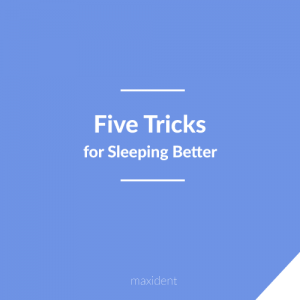
We have looked at different types of stress management, including time management, breath focus, and mindfulness; now it seems only reasonable to look at how sleep affects stress and vice versa. Managing stress effectively is all about balance, so it stands to reason that if something is off balance in our lives, we should attempt to fix it. Sleep is essential to that balance we strive for, but loss of sleep can disrupt that balance and throw us into a state of chaos. How much sleep is required? The answer is not set in stone. Everyone is different and everyone needs a certain amount of hours to function properly. The general rule seems to be between seven and nine hours of sleep; however, it all depends on the person. How many hours of sleep do you need? Will seven hours suffice or are you an individual that needs more in order to go about your day without yawning? Don’t fall under the misconception that you need exactly eight hours of sleep to avoid catastrophe; basically, you need to figure out how many hours work best for you.
Whether you need six hours or ten hours, the loss of a good night’s sleep can be devastating to your physical and mental health. In 2013, The American Psychological Association (APA) conducted a survey to compare those who got less than eight hours with those who got eight or more and the results are not that surprising. Of those surveyed who received less than eight hours, 45% felt irritable and angry, 40% felt overwhelmed, 40% had an increase in stress levels, and 52% lost patience or yelled at their children. Of those who received eight or more hours of sleep, only 32% felt irritable or angry, 27% felt overwhelmed, 25% had an increase in stress levels, and only 27% lost patience or yelled at their children. Numbers don’t lie. Lack of sleep leads to psychological strain, issues in judgment, and mood disruptions, while muscle repair and memory consolidation also suffer.
Just as sleep has a significant impact on stress levels, stress has a significant impact on sleep patterns. The more sleep you lose the more stressed you feel. And the more stressed you feel the harder it is to sleep. When stress causes your mind to race with thoughts, the sympathetic nervous system can’t shut down, consequently leaving the brain hyperactive, and this then turns into a vicious cycle difficult to break. Stress, however, can do more than just affect your sleep, it can also cause bouts of insomnia. Since sleep is necessary to our health and well-being, if lost, our bodies and our brains can’t recharge and we don’t function properly.
Let’s look at five tricks to change your sleep patterns in order to get a longer and better sleep thereby reducing stress and renewing your physical and mental state.

1 Use the bedroom only for sleep
The bedroom sends a subliminal message that it’s time for bed, so when we spend our waking hours in there doing things we would normally do during the day, we confuse that message; and, when it is actually time for bed, we don’t sleep because our brain is suddenly accustomed to the idea that we are supposed to be awake. Go to bed only when you know it’s time and no earlier and you will avoid this confusion.
2 Maintain a sleep schedule
What happens when we fall asleep and get up at different times? We suffer a bout of jet lag. If you’ve ever been on a trip overseas only to come back and try to sleep at the time you’re used to, things tend to get a little haywire. You don’t sleep more than you toss and turn, trying to figure out why nothing happens when you close your eyes. Nothing happens because you’ve disrupted your usual circadian rhythm and your body now has to adjust to the change. So what happens if you fall asleep at eleven for a few days, then for the next few days after that you try to fall asleep at ten? It gets harder. You can’t bounce from these different times without feeling the same effects you’d feel with jet lag. If you maintain a sleep schedule by falling asleep and waking at the same time every day, your circadian rhythm will achieve proper balance, and you will fall asleep faster and easier.

3 Stop pressing snooze
REM sleep is the deepest form of sleep we achieve, but since this form of sleep is more prominent toward the morning, pressing snooze on our alarm clocks (or phones) can cause a brainwave shift that can possibly shorten our REM sleep quota. This, in turn, impairs mental function during the day. If you need to set an alarm, make sure to set it at the time when you know you’ll get up in order to avoid pressing snooze.

4 Don’t have caffeinated beverages
Caffeine is known for keeping people awake as it is a stimulant that increases alertness. The sources of caffeine are brewed and instant coffee, cappuccino or latte, brewed espresso and decaf coffee. Tea is no stranger to caffeine, either, so if you’re thinking of changing your evening beverage from coffee to tea, try to avoid the following: iced tea, black or flavored black tea (leaf or bag), green and white, and decaf tea. Herbal tea is your only option for a good night’s sleep. Other beverages to avoid before bed are energy drinks, cola, and diet cola.

5 Practice relaxing
Winding down after a long day of work can be difficult; if you find that you’re ready for bed but when you close your eyes you can’t sleep, try a five-minute yoga routine to relax. If that doesn’t work, you can always read, take a warm bath or hot shower, or even practice your deep breathing exercises from my earlier posts.
The way to be productive and alert during the day is to get a good night’s sleep. What are your tricks and tips for achieving this? Please feel free to share with us the remedies that worked for you and even the ones you tried but now avoid.
Suggested Page:



